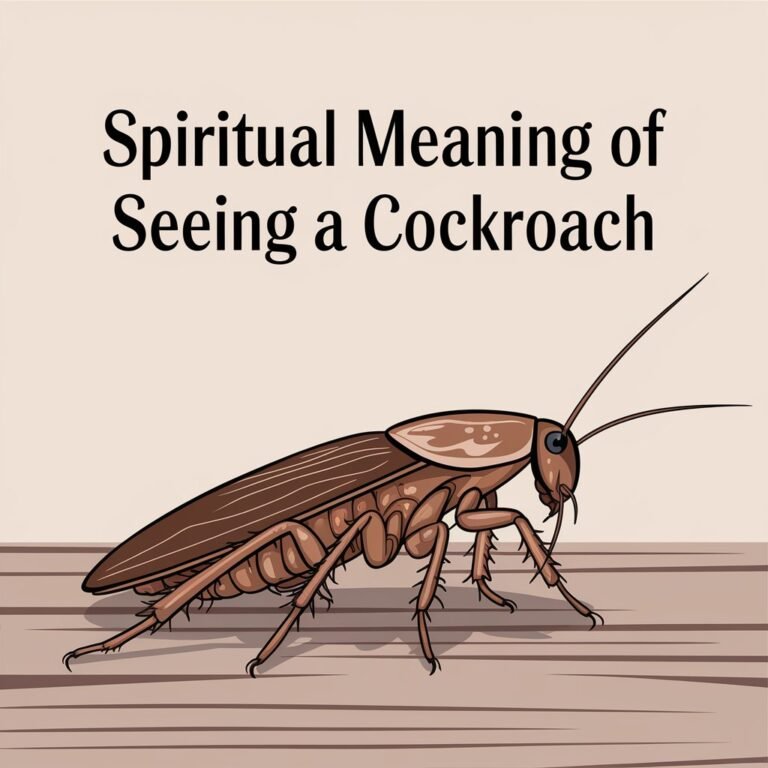10 Spiritual Meanings of Turban
As we explore the spiritual meanings of the turban, we uncover layers that go beyond mere fabric. It serves as a symbol of faith and a profound expression of identity, reminding us of the values we hold dear. Each fold carries stories of humility and wisdom, while its vibrant colors reflect our personal journeys. By understanding these meanings, we can appreciate the deeper connections it fosters within communities. But what do these intricate interpretations reveal about our own lives and beliefs? Let's find out together.
In a Nutshell
- The turban symbolizes honor and commitment to justice, reflecting spiritual values in Sikhism and other cultures.
- Each fold and color of the turban conveys unique narratives, representing personal beliefs and heritage.
- Wearing a turban fosters community and respect, acting as a unifying force among individuals.
- The turban serves as a tool for meditation, promoting inner peace and grounding during spiritual practices.
- It embodies humility and grace, reminding wearers to focus on inner virtues over materialistic pursuits.
Symbol of Faith
When we think about the turban, it often evokes a sense of deep cultural and spiritual significance that transcends mere fabric. For many, the turban serves as a powerful symbol of faith, embodying the values and beliefs central to various faith traditions.
It's more than just a piece of clothing; it connects us to a collective identity, steeped in history and purpose. In Sikhism, for instance, the turban represents honor, spirituality, and the commitment to uphold justice. Worn with pride, it signifies a life dedicated to service and humility.
In other cultures, the turban may denote wisdom, respect, or a mark of leadership. Each fold and color carries its own narrative, contributing to its profound cultural significance.
As we explore the spiritual meanings behind the turban, we realize it invites us to reflect on our own faith journeys. It reminds us that wearing this symbol is an expression of our beliefs and a bridge to others who share similar values.
Expression of Identity
The turban stands as a vibrant expression of identity, intricately woven into the fabric of cultural narratives and personal beliefs. For many of us, it serves as a powerful symbol of our heritage, reflecting not just our roots but also our journey through life.
When we don a turban, we're not just wrapping fabric around our heads; we're embracing a rich tapestry of cultural significance that connects us to our ancestors and the values they instilled in us.
In our diverse communities, the turban acts as a canvas of personal expression. Each fold and color can signify different meanings—celebrating milestones, expressing individuality, or even showcasing allegiance to a particular group.
We wear it with pride, knowing it tells our unique story while also resonating with those who share similar experiences.
Moreover, the turban encourages dialogue and connection among us. When we see someone in a turban, it often ignites curiosity and fosters understanding, inviting conversations about culture and identity.
Ultimately, this beautiful headwear embodies our shared humanity and highlights the intricate layers of who we are, reminding us that we're all part of a larger narrative.
Mark of Respect
A turban often serves as a profound mark of respect, transcending mere fashion to embody deep cultural and spiritual significance. We recognize that its importance varies across communities, but it consistently carries a sense of honor and dignity.
Let's explore its cultural significance through three key aspects:
- Historical Context: The turban has roots that stretch back centuries, often linked to the ruling classes and spiritual leaders. By wearing one, we pay homage to this rich legacy, acknowledging the sacrifices and wisdom of those who came before us.
- Symbol of Equality: In many cultures, the turban symbolizes equality among individuals. When we don a turban, we embrace a shared identity, fostering unity and mutual respect, regardless of socioeconomic status.
- Ceremonial Importance: During significant life events, such as weddings or religious ceremonies, the turban takes on heightened meaning. It's a way to honor traditions and connect with the collective spirit of our community.
In essence, wearing a turban is more than a personal choice; it's a profound statement that resonates with our desire for belonging and respect within a larger cultural tapestry.
Emblem of Humility
Wearing a turban also embodies an emblem of humility, reminding us to approach life with grace and modesty. As we don this humble attire, we embrace a deeper understanding of our place in the world. The turban's gentle wrap around our heads serves as a constant reminder to prioritize inner virtues over outward appearances. It encourages us to cultivate a modest expression, one that speaks volumes about our character without the need for ostentation.
- Natural soy 6 oz candle for Negative Energy & People
- Includes Sage, Himalayan Crystal Salt and Essential Oils in Every Candle
- 7 Chakra Crystal Candles Set: Each candle includes chakra tumble stones giving you the most healing...
- Variety of Unique Aromas: Choose from 7 different aromatherapy scents and a wonderful selection that...
- Cleansing Sage: Elevate your home with the soothing essence of sage candles. Ideal for relaxation...
- Pure, Non-Toxic Bliss: Crafted from soy wax, these candles emit no harmful toxins. Enjoy a clean,...
- Self Love Crystal CANDLE - Enjoy the fresh, floral Sea Salt & Orchid scent during intentional...
- Homegrown and Organic Herbs - Embrace self-love and personal acceptance with the Girls Need Love...
- Natural Sea Salt for Purification: Crafted from pure sea salt, it’s used for energy purification,...
- Ideal for Rituals & Spellwork: Use this natural sea salt in rituals like spellwork, altar...
In a society often enamored with status and materialism, the turban stands as a powerful symbol of simplicity. It invites us to reflect on our intentions, urging us to seek authenticity in our interactions. This approach fosters a sense of belonging among us, as we share a common commitment to humility and respect.
When we wear a turban, we connect with a rich tradition that values connection over competition. It becomes a bridge, linking us to others who also endeavor for a humble existence.
In this shared journey, we find strength and community, reminding ourselves that true greatness often lies in our ability to serve and uplift one another, rather than in the accolades we might receive.
Connection to Heritage
Turban culture deeply intertwines with our heritage, serving as a living proof to the histories and traditions that shape our identities. As we explore the cultural significance of turbans, we uncover layers of meaning that connect us to our ancestors and their struggles. Each fold and color tells a story, reminding us of our historical roots.
- Identity: The turban symbolizes who we are, reflecting our ethnic backgrounds and personal journeys. It's a badge of honor that fosters a sense of belonging within our communities.
- Tradition: Wearing a turban is often linked to significant life events, from marriages to religious ceremonies. These traditions reinforce our bonds, creating a shared experience that transcends generations.
- Unity: In diverse societies, the turban acts as a unifying force, bridging gaps between different cultures. It invites conversations, fostering understanding and respect among varied backgrounds.
Reminder of Spiritual Journey
Throughout our lives, the turban serves as a constant reminder of our spiritual journey, intertwining our daily existence with deeper meanings and reflections. Each time we wrap the fabric around our heads, we connect with the essence of our spiritual growth and personal transformation. The act itself becomes a ritual, a moment to pause and reflect on where we've been and where we're heading.
As we fasten the turban, we acknowledge the struggles and triumphs that shape our identity. It symbolizes not just an outward appearance but also an internal commitment to evolving into our best selves. We find strength in its layers—each fold a representation of our experiences, teaching us resilience and humility.
In a world often focused on the superficial, the turban invites us to look beyond the surface. It encourages us to engage in mindful practices, fostering a sense of belonging to a community that values spiritual enlightenment.
Together, we set forth on this path of discovery, recognizing that our spiritual journeys are interwoven. The turban, therefore, becomes a beacon, guiding us toward authenticity and unity in our collective search for meaning.
Representation of Wisdom
In the intricate dance of culture and tradition, we find that the turban embodies not just a piece of fabric but a profound representation of wisdom. As we explore this symbolism, we recognize how spiritual leaders don their turbans as a manifestation of their commitment to wisdom traditions. The turban serves as a visual cue of their journey and the lessons learned along the way.
Consider three key aspects of this representation:
- Cultural Identity: The turban connects us to our heritage, reminding us of the wisdom that has been passed down through generations. It's a badge of honor, linking us to our roots.
- Authority and Respect: When worn by spiritual leaders, the turban signifies authority and invites respect. It's a reminder that wisdom isn't just about knowledge but also about the responsibility that comes with it.
- Spiritual Guidance: The turban symbolizes the guidance these leaders provide. It reflects their role in nurturing our spiritual journeys, helping us navigate life's complexities with clarity.
Through the turban, we embrace a collective identity that honors wisdom in all its forms.
Tool for Meditation
When we view the turban as a tool for meditation, its significance expands beyond cultural adornment to become a conduit for introspection and spiritual connection.
As we wrap the fabric around our heads, we can feel a shift; it's as if we're preparing our minds for a sacred journey. This act becomes a ritual, inviting us to engage in mindful breathing. With each inhalation, we ground ourselves in the present, and with each exhalation, we release distractions that cloud our thoughts.
The turban's presence serves as a reminder of our focused intention. It encourages us to anchor our thoughts and emotions, allowing our meditation practice to deepen.
We find comfort in its embrace, which signifies our commitment to self-exploration and spiritual growth. Together, we can embrace this tradition, recognizing how the turban can enhance our connection to something greater than ourselves.
Sign of Community
The act of wearing a turban extends beyond personal meditation; it embodies a powerful symbol of community. When we don a turban, we're not just making a fashion statement; we're embracing a shared identity that fosters community unity. This headpiece carries deep cultural significance, binding us together in our traditions and beliefs.
- A Shared Identity: Wearing a turban connects us to those who share our values, history, and experiences. It's a visual reminder that we belong to something bigger than ourselves.
- Celebration of Diversity: Each turban style reflects the rich tapestry of our cultural backgrounds. By wearing it, we honor our differences while promoting a sense of togetherness.
- Support and Solidarity: In times of need, the turban stands as a beacon of support. It reminds us that we're part of a network that offers strength and compassion to one another.
Through this simple yet profound act, we affirm our commitment to our community. Each time we tie our turbans, we weave ourselves into a narrative of shared hopes and dreams, reinforcing the bonds that unite us all.
Manifestation of Peace
Wearing a turban often serves as a profound manifestation of peace, symbolizing tranquility and harmony in our lives. When we don a turban, we embrace a tradition that reflects our peaceful intentions and our desire for inner tranquility.
It's more than just an accessory; it's a statement of our commitment to fostering a sense of calm within ourselves and in the world around us.
In various cultures, the turban acts as a unifying element, drawing us together and reminding us of our shared values of peace and respect.
Each wrap of the fabric can be seen as a gentle reminder to cultivate serenity in our thoughts and actions. As we wear the turban, we signal to others that we're open to dialogue, compassion, and understanding—a collective invitation for others to join us on this path.
Frequently Asked Questions
Can Wearing a Turban Affect One's Spiritual Energy?
We believe wearing a turban can enhance energy flow and provide spiritual protection. By embracing this practice, we connect with a deeper sense of belonging, allowing us to cultivate our spiritual journeys together in meaningful ways.
Are There Specific Colors of Turbans That Hold Different Meanings?
We've noticed that different turban colors convey unique symbolism and cultural significance. For instance, vibrant hues often represent joy and celebration, while muted tones can signify respect and solemnity, enriching our understanding of identity and connection.
How Do Various Cultures Interpret the Spiritual Significance of Turbans?
We explore how various cultures embrace the turban's cultural significance, reflecting on its historical origins. Each community's unique interpretation deepens our understanding of identity, tradition, and spirituality, fostering a sense of belonging and shared heritage.
Is There a Ritual Involved in Putting on a Turban?
We often find that turban rituals carry deep spiritual significance. As we wrap fabric with intention, we honor our heritage and connection to community, transforming a simple act into a profound expression of identity and belonging.
Can Anyone Wear a Turban for Spiritual Reasons, Regardless of Culture?
We believe anyone can wear a turban for spiritual reasons, but we must respect cultural appropriation. Embracing this journey enhances our spiritual identity, fostering connection while honoring the traditions that inspire us.

Sofia Phillips is a renowned spirituality expert and the visionary behind SoulfulCreature.com. With a compassionate heart and an enlightened mind, Sofia embarks on a quest to guide others through the realms of spirituality. Her approach is deeply rooted in providing a nurturing and positive experience, allowing individuals to explore and grow in their spiritual journey.







